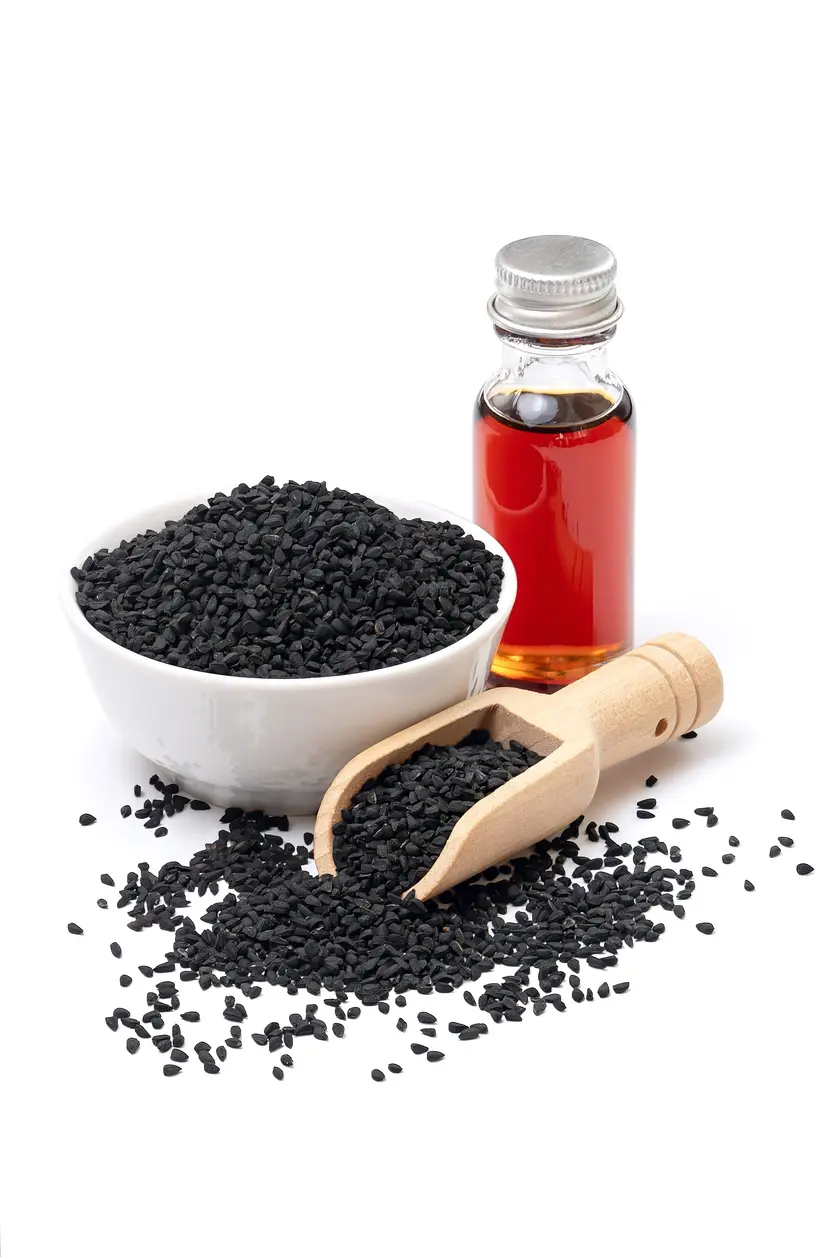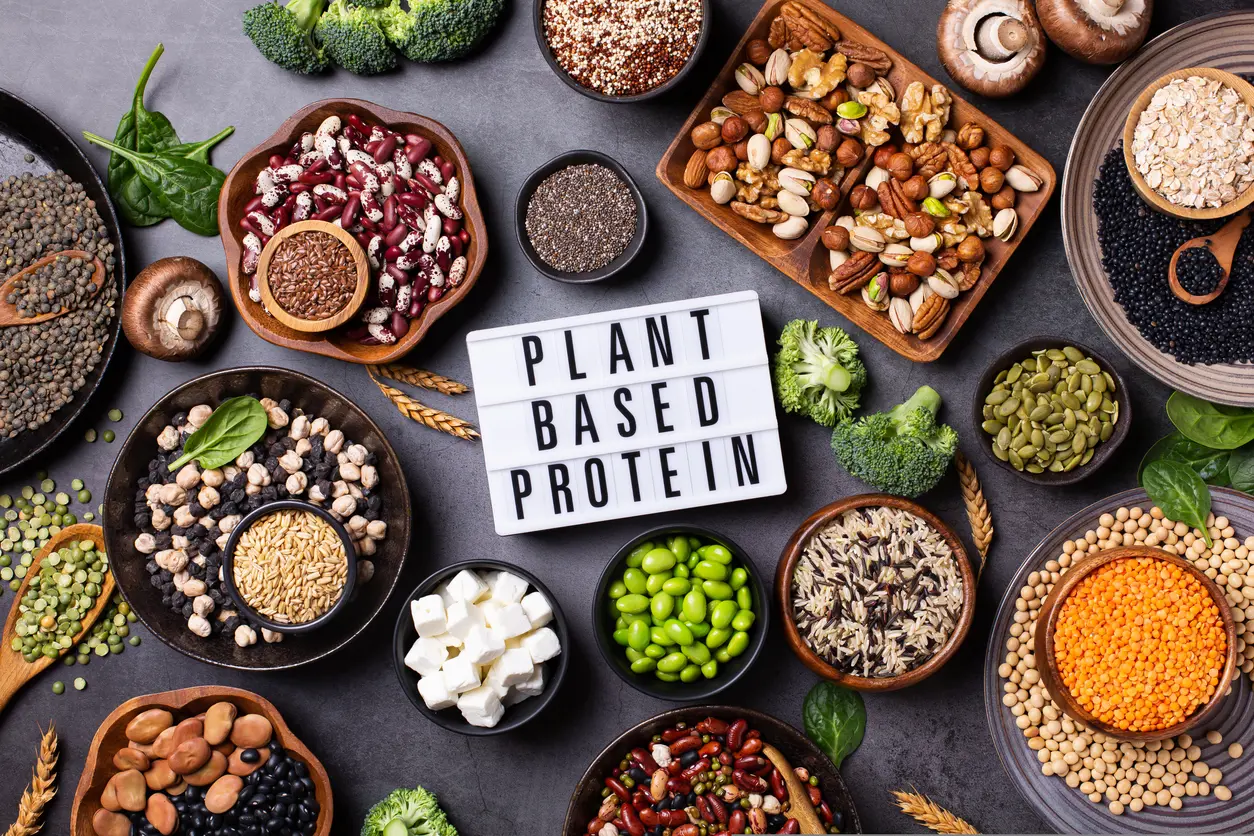Apple Cider Vinegar: Benefits, Risks, and How To Use

Apple cider vinegar (ACV) has been around for centuries as a kitchen staple and home remedy. You can find apple cider vinegar as a main ingredient in popular foods like salad dressings, pickles, and marinades.
Throughout history, apple cider vinegar has typically been used for medicinal purposes due to its antimicrobial properties and digestive support. Recent research now shows it may offer further health benefits, such as lowering blood sugar levels and supporting weight loss. [1] Jafarirad, S., Elahi, M.R., Mansoori, A., Khanzadeh, A., & Haghighizadeh, M.H. (2023). The improvement effect of apple cider vinegar as a functional food on anthropometric indices, blood glucose and lipid profile in diabetic patients: a randomized controlled clinical trial. Front Clin Diabetes Healthc. 4,(1288786). doi: 10.3389/fcdhc.2023.1288786.
In this post, we'll cover what exactly apple cider vinegar is, its potential health benefits, possible side effects and the best ways to use it safely.
What Is Apple Cider Vinegar?
Apple cider vinegar is a type of vinegar made from fermented apple juice. It's known for its strong smell, sharp flavor, and possible health uses. [2] Cleveland Clinic. (2025, May 20). What Apple Cider Vinegar Can (and Can’t) Do for You.
ACV is made by extracting apple juice from crushed fresh apples. It then goes through the first fermentation, where yeast turns natural sugars into alcohol. Next, it goes through a second fermentation, where bacteria convert the alcohol into acetic acid. [2] Cleveland Clinic. (2025, May 20). What Apple Cider Vinegar Can (and Can’t) Do for You. , [3] Benisek, A. (2024, July 11). Is Apple Cider Vinegar Good for Health? WebMD. Acetic acid is a key ingredient in ACV and is the main active compound responsible for its sour taste and distinctive smell.
ACV is also composed of water, antioxidants, and trace nutrients from apples and "the mother", which is a cloudy mix of enzymes, proteins, and beneficial bacteria. Only found in raw, unfiltered ACV, the mother is believed to enhance apple cider vinegar benefits. [1] Jafarirad, S., Elahi, M.R., Mansoori, A., Khanzadeh, A., & Haghighizadeh, M.H. (2023). The improvement effect of apple cider vinegar as a functional food on anthropometric indices, blood glucose and lipid profile in diabetic patients: a randomized controlled clinical trial. Front Clin Diabetes Healthc. 4,(1288786). doi: 10.3389/fcdhc.2023.1288786. , [2] Cleveland Clinic. (2025, May 20). What Apple Cider Vinegar Can (and Can’t) Do for You.
Some trace minerals found in ACV are: [3] Benisek, A. (2024, July 11). Is Apple Cider Vinegar Good for Health? WebMD.
- Calcium
- Magnesium
- Potassium
- Phosphorus
A few types of ACV are: [3] Benisek, A. (2024, July 11). Is Apple Cider Vinegar Good for Health? WebMD.
- Raw/Unfiltered
- Filtered
- Pasteurized
Raw/Unfiltered
Raw/unfiltered ACV offers "the mother," which is the best type to have stored. Since this type is unprocessed, no heat of filtration is used, which preserves its probiotics and nutrients. It appears cloudy and has sediment on the bottom. Some common brands of raw/unfiltered ACV are Bragg and Dynamic Health. [3] Benisek, A. (2024, July 11). Is Apple Cider Vinegar Good for Health? WebMD.
Treating your skin and hair with raw/unfiltered apple cider vinegar may offer benefits like managing dandruff and oily skin. This is due to its antimicrobial and antifungal properties, which may make it harder for yeast and other bacteria to develop. However, it's extremely important to dilute your ACV solution in water to avoid skin irritation, burns, or dryness.
Raw/unfiltered ACV can also be found in health tonics and detox drinks, as well as in cooking, which are probiotic-rich, minimally processed, and natural. The downside is that raw/unfiltered ACV has a shorter shelf life, and the taste and appearance can make some lose their appetite. [3] Benisek, A. (2024, July 11). Is Apple Cider Vinegar Good for Health? WebMD.
Filtered ACV
Filtered ACV has no "mother" since it removes bacteria and sediment, making it appear clear and light amber. This type of ACV is often used in marinades and salad dressing, and for household cleaning. Some people prefer this type of ACV because it appears cleaner and tastes less bitter due to the filtration. It also has a longer shelf life than the raw/unfiltered ACV. However, due to filtration, it has fewer nutrients and no probiotics, making it less popular in health remedies. [3] Benisek, A. (2024, July 11). Is Apple Cider Vinegar Good for Health? WebMD.
Pasteurized ACV
Pasteurized ACV is heat-treated, which kills both the good and the bad bacteria. It's typically filtered, but can come in unfiltered forms. Its appearance is transparent and significantly less cloudy than raw.
Pasteurized ACV is mainly used for nutrition, such as the preservation of foods and cooking, and is not commonly used for medicinal purposes. Since it's been pasteurized, it has a long, stable shelf life and is safe for those with compromised immune systems. However, it doesn't contain "the mother," so it lacks enzymes and probiotics, making it not ideal for natural remedies, health tonics, or other medicinal purposes. [3] Benisek, A. (2024, July 11). Is Apple Cider Vinegar Good for Health? WebMD.
Health Benefits of Apple Cider Vinegar
According to scientific research, there are many apple cider vinegar benefits. Some include:
Supports Digestion
Due to its enzymatic activity, ACV can support digestion by improving gut health. Essentially, the acetic acid that comprises part of ACV helps create optimal conditions in the human body for enzymes such as pepsin, amylase, and lipase to do their jobs, thereby helping the human body's digestive system break down foods. [5] Urbinati, E., Di Nunzio, M., Picone, G., Chiarello, E., Bordoni, A., & Capozzi, F. (2021). The Effect of Balsamic Vinegar Dressing on Protein and Carbohydrate Digestibility is Dependent on the Food Matrix. Foods, 10(2):411. doi: 10.3390/foods10020411.
Blood Sugar Control
Some research shows that consuming ACV daily can slightly decrease spikes in blood sugar after meals. It may also reduce A1C, which is a blood test that measures blood glucose levels over 2-3 months for people with Type 2 diabetes.
Weight Management
Research reveals that ACV can play a role in fat metabolism and appetite suppression. [1] Jafarirad, S., Elahi, M.R., Mansoori, A., Khanzadeh, A., & Haghighizadeh, M.H. (2023). The improvement effect of apple cider vinegar as a functional food on anthropometric indices, blood glucose and lipid profile in diabetic patients: a randomized controlled clinical trial. Front Clin Diabetes Healthc. 4,(1288786). doi: 10.3389/fcdhc.2023.1288786. , [4] Shmerling, R.H. (2023, June 15). Apple cider vinegar for weight loss: Does it really work? Harvard Health. One study involved 175 participants who consumed a beverage containing either 0, 1, or 2 tablespoons of ACV daily. After three months, those who consumed the vinegar experienced modest weight loss (between 2 and 4 pounds) compared to those who did not consume any. [4] Shmerling, R.H. (2023, June 15). Apple cider vinegar for weight loss: Does it really work? Harvard Health.
Antimicrobial Properties
Traditionally, ACV has been used as a natural cleaner and skincare solution due to its antimicrobial properties. For cleaning, you can mix ACV with a cleaning solution to remove dirt on counters and appliances. ACV, when diluted, can also be used as a toner or spot treatment for acne and oily-prone skin.
Heart Health
Limited evidence suggests ACV can possibly benefit cholesterol and blood pressure levels. [1] Jafarirad, S., Elahi, M.R., Mansoori, A., Khanzadeh, A., & Haghighizadeh, M.H. (2023). The improvement effect of apple cider vinegar as a functional food on anthropometric indices, blood glucose and lipid profile in diabetic patients: a randomized controlled clinical trial. Front Clin Diabetes Healthc. 4,(1288786). doi: 10.3389/fcdhc.2023.1288786. , [4] Shmerling, R.H. (2023, June 15). Apple cider vinegar for weight loss: Does it really work? Harvard Health. Specifically, it may lower cholesterol and triglycerides, decreasing the risk of heart problems.
Understanding apple cider vinegar nutrition explains why it's become a staple wellness trend. Most of its health benefits stem from acetic acid rather than calories, vitamins, or minerals.
Risks and Side Effects of Apple Cider Vinegar
While it may offer health benefits, it's essential to understand some of the apple cider vinegar side effects and risk factors. Some things to watch out for are:
Tooth Enamel Erosion: While its acetic acid constitution can help digestion, consuming undiluted ACV can damage teeth by wearing away tooth enamel, as one of the apple cider vinegar risks.
Digestive Discomfort: You may feel digestive discomfort when taking ACV because of its high acidity. It may irritate your stomach lining and cause symptoms like heartburn, nausea, acid reflux, bloating, and diarrhea. If you have a particularly delicate stomach or have any digestive sensitivities, make sure to talk with your healthcare provider.
Medication Interactions: If you're taking medications such as insulin, diuretics, or other prescriptions, there may be interactions with ACV. It's important to consult a properly credentialed medical provider before consuming ACV regularly. [6] Mayo Clinic. (2025, March 4). Drinking apple cider vinegar for weight loss seems far-fetched. Does it work?
Skin Irritation: Using undiluted ACV topically may irritate the skin. This is why diluting it is important to avoid any skin irritation, such as burns, dryness, stinging, and redness.
Not for Everyone: If you have acid reflux, ulcers, or other sensitivities, it’s best to seek proper medical advice before using ACV.
How to Use Apple Cider Vinegar Safely
It's recommended to dilute ACV, such as 1 to 2 tablespoons (tbsp) in 8 oz. of water, and to avoid drinking it straight or in large amounts. This will help minimize the risks and side effects of consuming ACV. like stomach irritation. [4] Shmerling, R.H. (2023, June 15). Apple cider vinegar for weight loss: Does it really work? Harvard Health.
The best times to consume ACV are in the morning and before meals to potentially boost metabolism and control appetite. Make sure you dilute ACV before consuming or using it topically.
It's also suggested to patch test ACV before using a large amount on your skin. To do this, apply ACV topically on a small area of skin, so that if there is a reaction, it's contained to that patch. [1] Jafarirad, S., Elahi, M.R., Mansoori, A., Khanzadeh, A., & Haghighizadeh, M.H. (2023). The improvement effect of apple cider vinegar as a functional food on anthropometric indices, blood glucose and lipid profile in diabetic patients: a randomized controlled clinical trial. Front Clin Diabetes Healthc. 4,(1288786). doi: 10.3389/fcdhc.2023.1288786. If there is no reaction, the individual has "passed" the patch test. This test does not replace a proper dermatology consultation or proper medical advice, so seeking medical advice is still recommended.
When it comes to storing ACV, the raw, organic form with "the mother" is preferred over other forms. Keep your raw ACV in a cool, dark place like a pantry or cupboard. The bottle should be tightly sealed to decrease oxygen exposure and retain its flavor and quality.
Conclusion
Apple cider vinegar (ACV) is backed by many scientifically supported benefits, such as skin, heart, and digestive health. If you're interested in using ACV primarily for health reasons, raw and unfiltered ACV is recommended over the other two kinds. It's also recommended to dilute your ACV to mitigate potential side effects.
However, like many wellness trends, it's important to consider potential side effects and risks. Make sure to consult a qualified healthcare professional for safe and effective use, especially if you have a history of skin or digestive sensitivities.
Was this article helpful?
-
The improvement effect of apple cider vinegar as a functional food on anthropometric indices, blood glucose and lipid profile in diabetic patients: a randomized controlled clinical trial. Front Clin Diabetes Healthc. 4,(1288786). doi: 10.3389/fcdhc.2023.1288786.; Jafarirad, S., Elahi, M.R., Mansoori, A., Khanzadeh, A., & Haghighizadeh, M.H. (2023). ;
https://pubmed.ncbi.nlm.nih.gov/38028980/ -
Cleveland Clinic. (2025, May 20). What Apple Cider Vinegar Can (and Can’t) Do for You.;
https://health.clevelandclinic.org/exploring-the-health-benefits-of-apple-cider-vinegar -
Is Apple Cider Vinegar Good for Health? WebMD. ; Benisek, A. (2024, July 11).;
https://www.webmd.com/diet/apple-cider-vinegar-and-your-health -
Apple cider vinegar for weight loss: Does it really work? Harvard Health. ; Shmerling, R.H. (2023, June 15). ;
https://www.health.harvard.edu/blog/apple-cider-vinegar-diet-does-it-really-work-2018042513703 -
The Effect of Balsamic Vinegar Dressing on Protein and Carbohydrate Digestibility is Dependent on the Food Matrix. Foods, 10(2):411. doi: 10.3390/foods10020411.; Urbinati, E., Di Nunzio, M., Picone, G., Chiarello, E., Bordoni, A., & Capozzi, F. (2021). ;
https://www.mdpi.com/2304-8158/10/2/411 -
Drinking apple cider vinegar for weight loss seems far-fetched. Does it work?; Mayo Clinic. (2025, March 4). ;
https://www.mayoclinic.org/healthy-lifestyle/weight-loss/expert-answers/apple-cider-vinegar-for-weight-loss/faq-20058394









